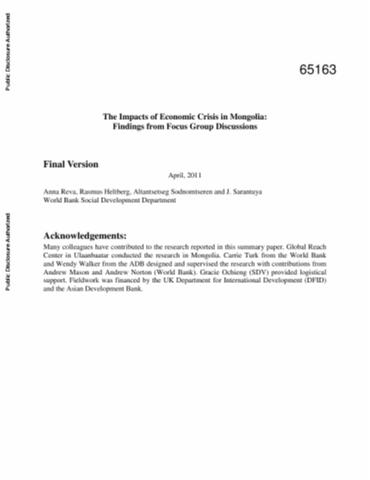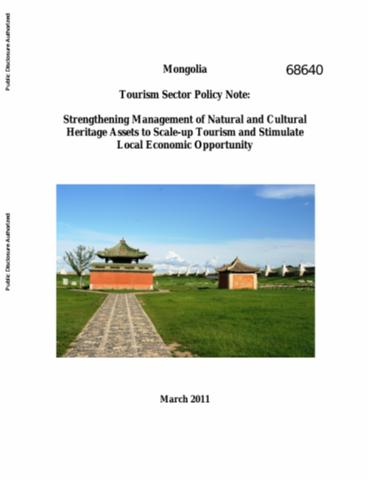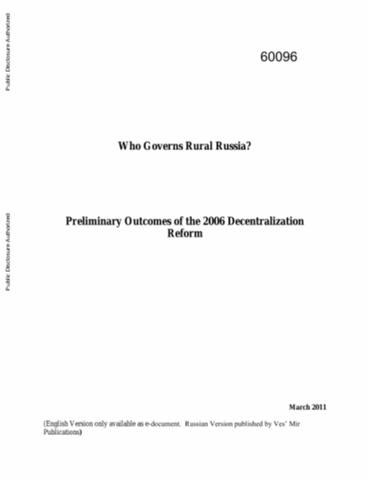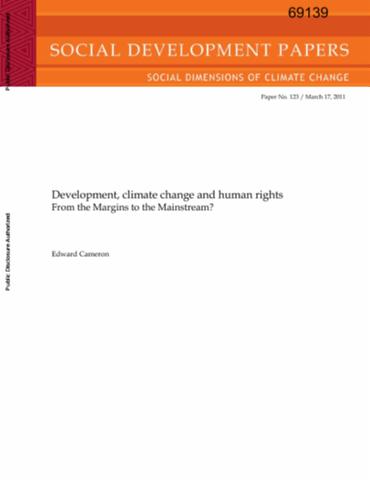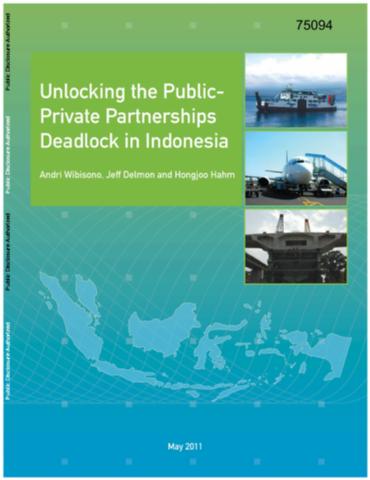The World Bank is a vital source of financial and technical assistance to developing countries around the world. We are not a bank in the ordinary sense but a unique partnership to reduce poverty and support development. The World Bank Group has two ambitious goals: End extreme poverty within a generation and boost shared prosperity.
- To end extreme poverty, the Bank's goal is to decrease the percentage of people living on less than $1.25 a day to no more than 3% by 2030.
- To promote shared prosperity, the goal is to promote income growth of the bottom 40% of the population in each country.
The World Bank Group comprises five institutions managed by their member countries.
The World Bank Group and Land: Working to protect the rights of existing land users and to help secure benefits for smallholder farmers
The World Bank (IBRD and IDA) interacts primarily with governments to increase agricultural productivity, strengthen land tenure policies and improve land governance. More than 90% of the World Bank’s agriculture portfolio focuses on the productivity and access to markets by small holder farmers. Ten percent of our projects focus on the governance of land tenure.
Similarly, investments by the International Finance Corporation (IFC), the World Bank Group’s private sector arm, including those in larger scale enterprises, overwhelmingly support smallholder farmers through improved access to finance, inputs and markets, and as direct suppliers. IFC invests in environmentally and socially sustainable private enterprises in all parts of the value chain (inputs such as irrigation and fertilizers, primary production, processing, transport and storage, traders, and risk management facilities including weather/crop insurance, warehouse financing, etc
For more information, visit the World Bank Group and land and food security (https://www.worldbank.org/en/topic/agriculture/brief/land-and-food-security1
Resources
Displaying 4606 - 4610 of 4907The Impacts of Economic Crisis in Mongolia
Mongolia was hit hard by the global economic recession, notably the fall in commodity prices. Gross Domestic Product (GDP) contracted by 1.6 percent in 2009 after growth of 8.9 percent in 2008. The country is narrowly specialized in production of a few primary goods with minerals comprising 70 percent of total exports. Since mid-2008, the prices of main export goods, including copper, zinc, crude petroleum, combed goat-down and cashmere dropped by close to or more than 50 percent, though prices of coal and gold held strong.
Mongolia Tourism Sector Policy Note
This report, Strengthening Management of Natural and Cultural Heritage Assets to Scale-up Tourism and Stimulate Local Economic Opportunity was prepared in March 2011.
Who Governs Rural Russia?
The objectives of the study are to: a) increase understanding of the effects and effectiveness of the implementation of the local government reform launched in 2006; and b) assess the impact of a World Bank-supported intervention that aimed to enhance effectiveness of the reforms by increasing local capacity and local participation. In line with these objectives, the study assessed the perceived effects and effectiveness of the implementation of the local government reform in selected provinces.
Development, Climate Change and Human Rights from the Margins to the Mainstream?
Since 2005, a growing number of vulnerable communities and nations have used the human rights lexicon to argue their case for an urgent and ambitious response to climate change. The purpose of this Social Development Department Working paper is to examine the emergence of a new discourse linking climate change and human rights, and to assess its social and political implications, particularly as they relate to development practitioners.
Unlocking the Public-Private Partnerships Deadlock in Indonesia
The challenges faced by Indonesia in creating a robust Public-Private Partnership (PPP) program are similar to those faced by many other middle-income countries. This paper provides a gap analysis for Indonesia's PPP framework based on lessons learned and good practice from countries with successful PPP programs. It identifies, in particular, the need for the government to: select good projects for PPP, rather than only complex ones that are less likely to attract private partners.






